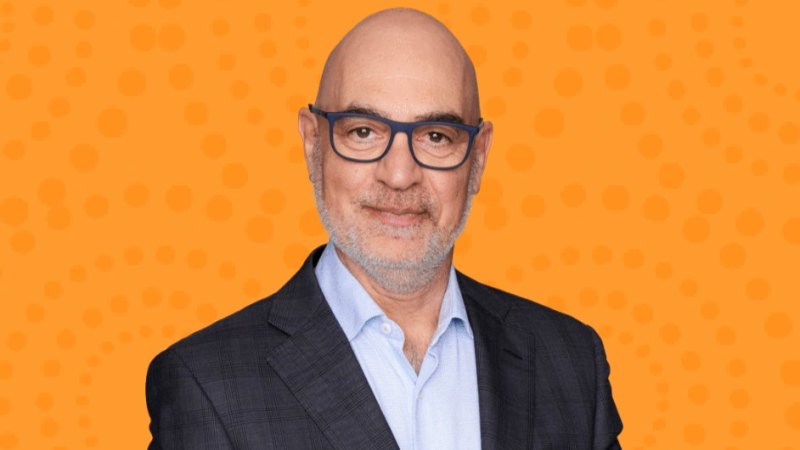Save articles for later
Add articles to your saved list and come back to them any time.
David Basheer is one of Australia’s most experienced sporting commentators, and presenter of The World Game football show. He was the first Australian to commentate a World Cup final, in 2010, and has also commentated on La Liga, the UEFA Champions League and the Olympics, among many others. He will be calling games at the 2023 FIFA Women’s World Cup for Seven.
David Basheer will commentate on the Women’s World Cup 2023.Credit: Seven
I am no football expert, but having a World Cup here in Australia: that’s big, right?
Yeah, massive. The fact we’re hosting a senior World Cup – we’ve hosted a youth World Cup in the ’90s, but never a senior World Cup – is huge, and I think it just reflects the growth of women’s football and all the progression Australia has made in that space.
It feels like, historically, being a football fan in Australia has been a tough row to hoe. With the World Cup coming here, do you see Australians opening up more to the game?
Yeah, they’re opening up because they’re hearing the stories of how the Matildas have got to this point, all the sacrifice they and their families have made, the amplification of the women’s professional game and how quickly it’s grown. I think they associate with some of the struggles of the early pioneers of women’s football, but also the determination of the current crop of Matildas to get to this point. I think those things run parallel and it’s a great narrative. The Australian sporting public are getting a greater understanding of the game, there’s no doubt, through this World Cup.
The Matildas celebrate their winning goal against France at Marvel Stadium in a World Cup warm-up game.Credit: Getty Images.
For you, personally and professionally, is this the pinnacle for you – is it, so to speak, the World Cup for commentators as well as for players?
Yeah, absolutely. This is my fifth Women’s World Cup – I’ve done the previous four with SBS and now with Channel Seven. It’s a great privilege to call a World Cup at home. I never thought, probably 10 years ago, that I’d get that opportunity, but the cards fell Australia’s way. I’ve done some events for Seven before and it was a thrill when they asked me to do this one. I was in Qatar last year for the Socceroos and that was a great thrill too, but nothing beats a home World Cup.
You’ve called football all round the world as well, haven’t you, trotted the globe.
Yep, I’ve done an FA Cup Final at Wembley, I’ve done the Champions League final in Moscow, in Athens, different events around the world. A highlight was calling the Women’s World Cup on site in France in 2019, it didn’t go the Matildas’ way, but it was a celebration of women’s football. Sarah Walsh and I called the final as well. There was also Tim Cahill’s goal in 2014 in Brazil, it was unbelievable, and also the Socceroos’ run last year. But just a great thrill to be able to broadcast a truly global sport for Australian TV.
It feels that women’s sport has been growing in prominence and significance a lot in recent years, but women’s football in particular – in Australia at least – seems to have really been rocketing up the charts. Do you still hear any negativity towards women’s football, or have we left that all behind?
I don’t personally hear anything negative towards women’s football and the Matildas. I think anyone who speaks negatively about women’s football and sport, you know, is living in a different generation. I think what the Matildas have shown, even this week with their message to FIFA [the Australian squad recorded a video message calling on FIFA to expedite pay parity between the men’s and women’s games], they’ve achieved pay parity with the Socceroos and so’s the United States, but there are a lot of countries lagging behind. I think the Matildas are agitating for the right kind of change in women’s football, and I think any negativity towards this World Cup, women’s football and the Matildas, should be filed in the dinosaur age, to be honest.
That is a big moment, isn’t it – anyone standing up to FIFA is significant, it’s a courageous act.
It is, and I think it shows the Matildas have the respect for the pioneers of the women’s game in Australia who fought different battles years ago. Just to participate, just to get clothing and some costs covered, a whole litany of things they fought for. And the current Matildas are fighting for other nations, and challenging FIFA’s view of women’s football. It has come forward a lot, but they’re saying: why stop here? It’s going to be a great tournament, the women’s game has taken so many leaps forward, let’s just continue with that momentum. And in doing so there’s a risk of taking the focus away from the football, but full credit to them because they’re taking a stance on issues they have very strong beliefs in.
In your expert opinion, does Australia have a chance in this World Cup?
Absolutely, they’ve got a very good chance to go deep into the tournament, and there’s nothing stopping them winning the World Cup. That relies on a number of factors: injuries are a huge factor, the luck of the draw when you get past the group stage. We’ve ticked the form category because we’ve gone into the World Cup with very good form, coming off a victory over France, beating England, beating Sweden in the last six months: that’s three top-four nations in the world. Defensively we look very sound. All the early issues Tony Gustavsson had with the team appear to be ironed out. We can rightly dream of almost the undreamable: Australia winning a senior World Cup.
The Women’s World Cup screens on Seven from Thursday, July 20, to Sunday August 20.
Find out the next TV, streaming series and movies to add to your must-sees. Get The Watchlist delivered every Thursday.
Most Viewed in Culture
From our partners
Source: Read Full Article



